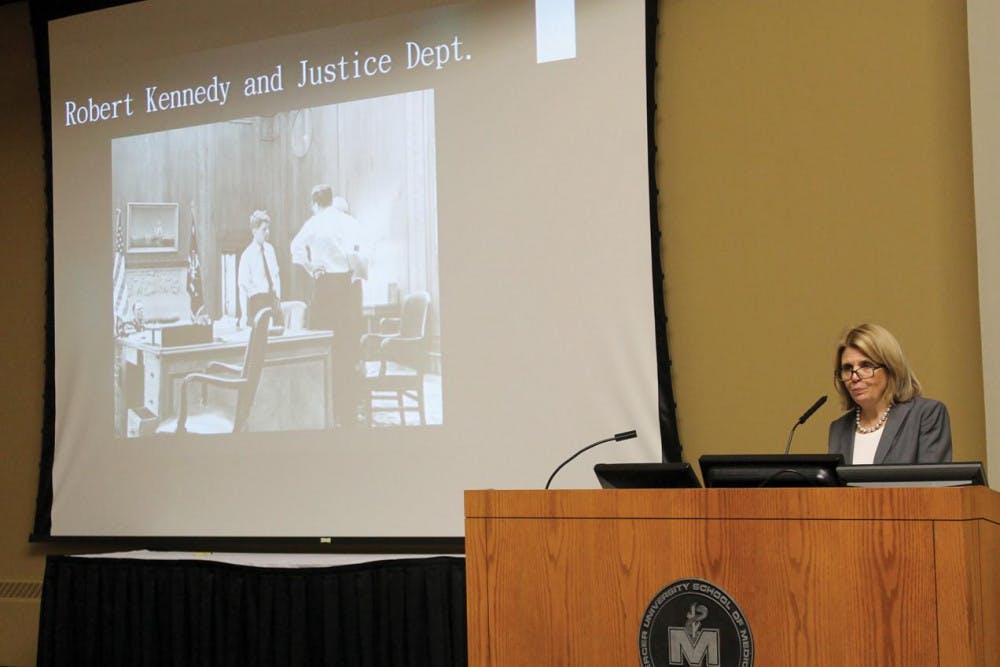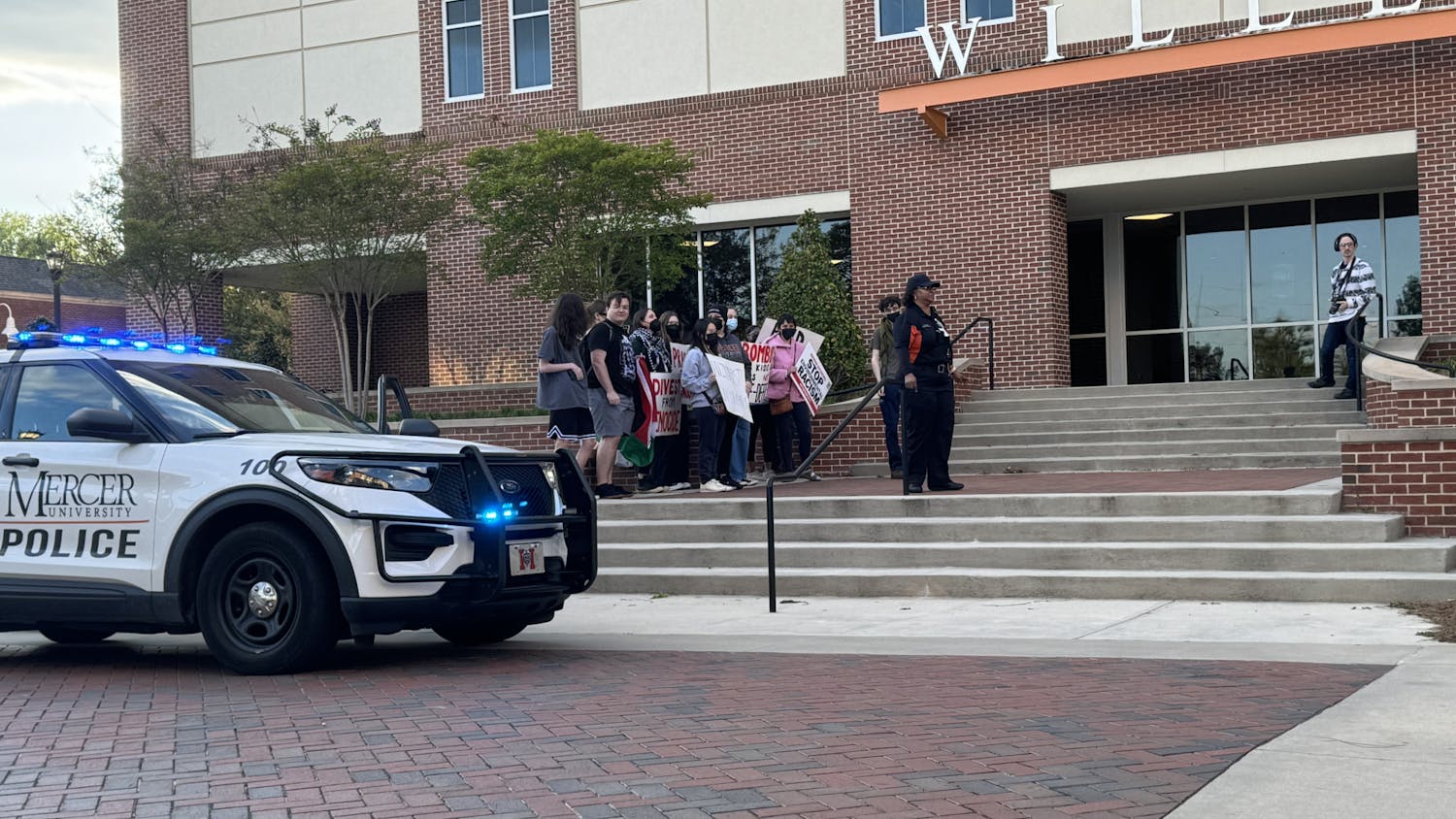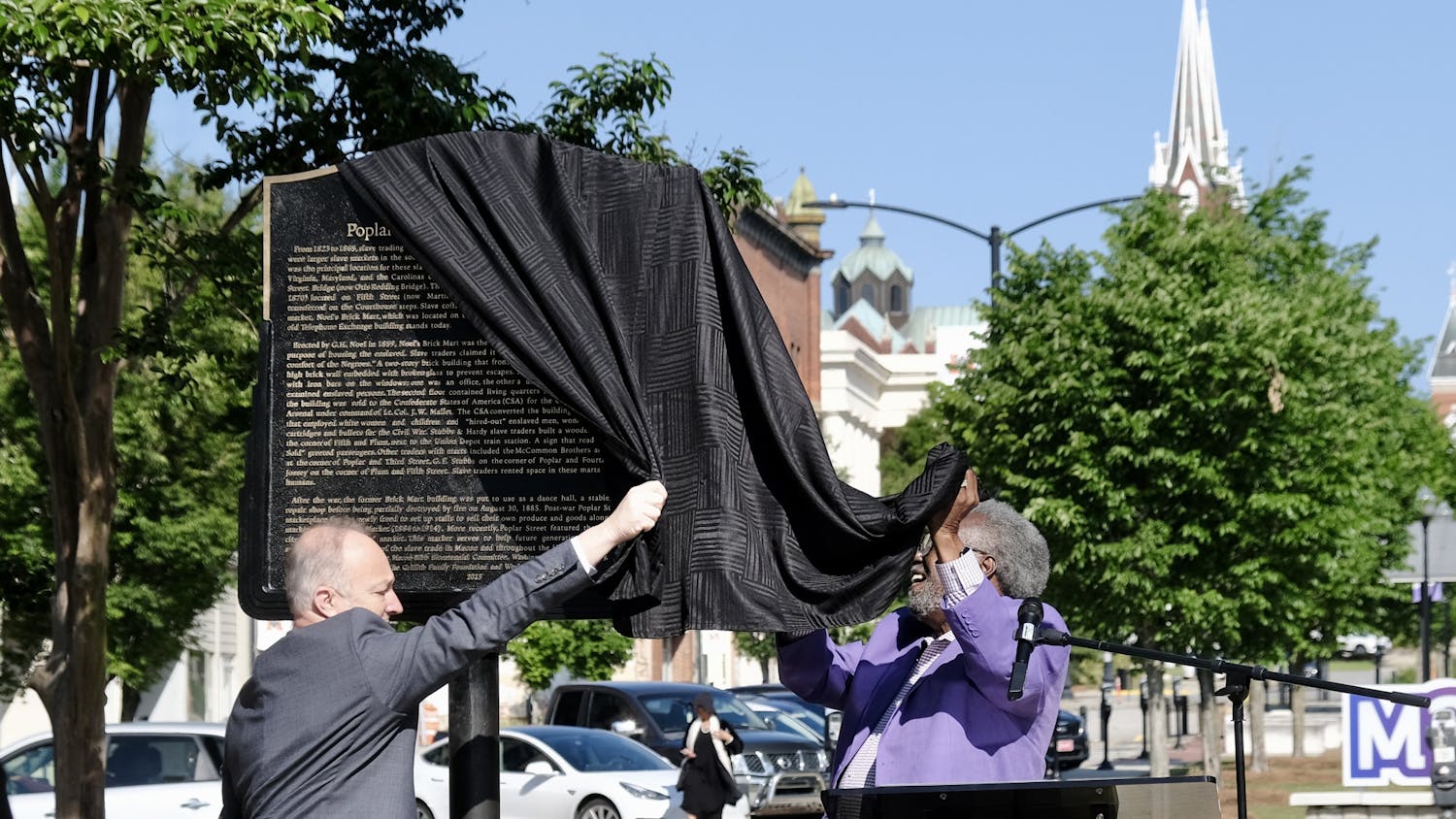Patricia Sullivan of the University of South Carolina became the latest scholar to speak at Mercer University’s Lamar Lectures, an annual lecture series on southern culture and history. This year’s topic: What happened to the Civil Rights Movement?
“Dr. Sullivan’s lectures ask us to think anew about the Civil Rights Movement as a dynamic period of American history,” said David Davis, Mercer professor and Lamar Memorial Lectures Committee member.
The series began in 1957 to promote the “permanent preservation of southern culture, history and literature,” according to the university website.
Over the course of three presentations on Oct. 19–20, Sullivan spoke on the circumstances that led to the rise and dissipation of the Civil Rights Movement in the 1950s and 60s.
The first lecture, "Beginnings: A law-based insurgency in the Jim Crow South," was held the morning of Oct. 19.
The lecture analyzing the spread of segregation and analyzed lawsuits that served as the legal framework for the movement. She discussed the inequalities of education and the eventual integration of the school system following the Supreme Court’s Brown v. Board of Education decision.
That evening, Sullivan also presented "'This is the Generation': The Peak Years of the Southern Civil Rights Struggle." Sullivan picked up this lecture where the previous one ended, focusing on the inequality of education and particular events that had an impact on the African American communities in the South.
During this time, “convulsive tremors were sent through southern cities,” Sullivan said. “Protests in Birmingham brought up pent anger in urban cities”.
“The theme of violence and fear was left in remnants all throughout this lecture,” said Naomi Black, a student at Mercer.
Sullivan conducted her final lecture on Oct. 20, titled "What Happened to the Civil Rights Movement?”
Sullivan concluded the series of lectures with events that characterized the end of the movement, but seemed to leave questions in the minds of her audience about the true ending of this issue.
“The overarching question of her lectures — what happened to the Civil Rights Movement — makes us wonder how the movement accomplished so much and if the movement accomplished enough,” said Davis.
Lamar lectures return to Mercer

Lamar Lectures by Patricia Sullivan, What happened to the Civil Rights Movement




